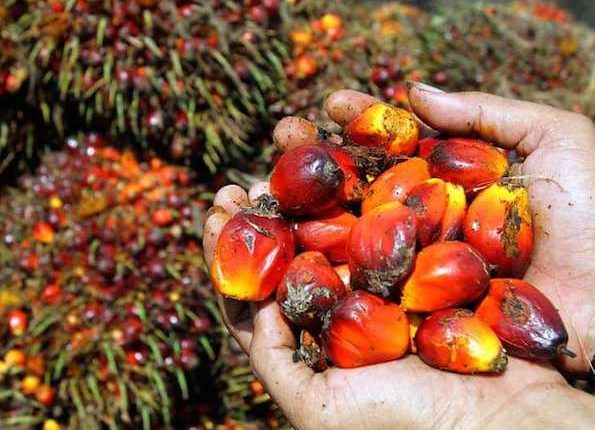
Nigeria’s manufacturers are hard hit by man-made setbacks such as multiple taxation, energy crisis, port congestions, naira instability, smuggling and policy flip-flops, among others.
Yet, they are defying these hiccups to make huge investments and commitments in the Nigerian economy through various sub-sectors.
Between January 2013 and June 2018, these manufacturers invested N4.43 trillion in plants, machines, buildings, vehicles and land, despite borrowing at a double-digit interest rate of between 20 and 21 percent within the period, according to a survey done by the Manufacturers Association of Nigeria (MAN).
In the first six months of 2018, they pumped N305.56 billion in investments, which, of course, represented 7.2 percent decline from N329.28 billion recorded in the corresponding half of 2017.
The palm oil makers are among the biggest but sometimes neglected manufacturers who have created much value in the economy in terms of investments, job creation, and foreign exchange earnings.
PZ Wilmar, for example, has pumped approximately $150 million in palm oil plantations in Cross River State alone, said Santosh Pillai, managing director.
“We are determined to continue with these investments and looking for opportunities to expand our plantations in the state. We have also invested around N20 billion in an oil palm refinery in Lagos,” he told BusinessDay last year.
PZ Wilmar, a subsidiary of PZ Cussons, has almost 26,500 hectares of palm oil plantations in Cross River State. About 5,549 hectares (ha) of oil palm plantation are located in Calaro Estate, while 2,369 ha are in an area known as Calaro Extension. The firm also acquired Ibiae plantations with 5,595 ha; Ibad plantations in Akampa with 7,805 ha; Kwa Falls in Akampa Akpabuyo with 2,014 ha, and Oban plantations, also in Akampa, with 2,986 ha. PZ Cussons has completed two palm oil processing plants in the Calaro Estate.
Presco, another major player, has so far invested N75 billion into the palm oil industry.
Felix Nwabuko, managing director of Presco, told BusinessDay recently that the company planned a capital expenditure investment of N46 billion between 2018 and 2022.
Nwabuko said the investments would go into plantations development, processing facilities, energy infrastructure and other supporting machinery, equipment and infrastructure.
He revealed that the company had a total land bank of 40,000 hectares, of which total planted areas were 20,136 hectares of oil palm plantation and 138 hectares of rubber plantation. Presco currently operates in Edo State.
Also, Okomu Oil Palm Company Plc is planning to boost Nigeria crude palm oil production to 80,000 metric tons per annual in the next five years with the investment of $50million milling facilities.
Gbenga Oyebode, chairman, Okomu Oil Palm Company Plc, said recently that the company plans to boost production with the installation of $50million milling facilities with the capacity to process 30-tons per hour. Okomu operates in Edo State communities.
However, these investments must be guarded jealously. The reason is simple: Nigeria is mulling a non-oil economy and palm oil can play a big role in it, say analysts.
A 2016 research by BudgIT using data from Indexmundi, the United States Department of Agriculture (USDA) and Vetiva Research found that Nigeria had a 45 per cent share of world’s palm oil market in 1960. The numbers showed that if Nigeria maintained its 45 percent share in 2016, it would be earning $17.5 billion annually from just one product—palm oil—in 2016. As of October 2018, one ton of palm oil was around $499.15, using Malaysian prices. Total palm oil output was 58.84 million metric tonnes. Assuming that Nigeria was still controlling 45 per cent of the global palm oil market that month, the country should be producing 26.48 million metric tonnes. Local demand is about 2.1 million metric tonnes, meaning that Nigeria would be able to satisfy local demand and still exported 24.38 million tonnes, earning $12.17 billion as foreign exchange.
Nigeria only scratched 900,000 metric tonnes of palm oil per annum in 2016, representing just 1.52 per cent of global production.
Now, compare this with data from the National Bureau of Statistics (NBS), which show that Nigeria earned N577 billion from total export in the first quarter of 2018 and N218.98 billion in the second quarter. This is about $2.20 billion for the half-year of 2018. Even if Nigeria tripled this number by the end of the year, it would still get less than what it should have been earning from just palm oil, at the end of the year.
Nigeria’s total non-oil export earnings are often far less than $5 billion. However, last year, Malaysia made over $18 billion from selling palm oil alone, despite that prices of the commodity were low. This shows that if Nigeria provides incentives to palm oil makers, it can make huge foreign exchange from it. This is not theoretical, but practical.
“Today, we are yet to benefit from the Anchor Borrowers Scheme, despite how important our industry is,” a senior management member of a palm oil firm told Businessday over the weekend.
Secondly, the industry needs to be protected from influx of smuggled products coming in through Kano. Apart from obnoxious health implications of such palm oil, there is also a negative impact on the local industry, which is struggling because the country has failed to police its borders.
It is estimated that palm oil worth 400,000 tonnes per annum are smuggled into the country annually.
“Visit any supermarket or traditional market in Nigeria and you will see that plenty of imported vegetable oil, which is banned in the country, is easily available. The current policies are only aiding cross-border trade and smuggling. The leading domestic refineries in Nigeria are facing a crisis and many in the country are not operational,” Pillai of PZ Wilmar said.
Palm oil is currently one of the commodities restricted by the Central Bank of Nigeria (CBN) from accessing the foreign exchange market in 2016, but smuggling from Malaysia to Ghana, down to Kano, is rife and hurts local investors.
“This discourages further huge investment by investors like us and creates unhealthy competition in the market,” Felix Nwabuko of Presco, told BusinessDay.
Romanus Oguegbu, managing director of a medium-scale palm oil mill in Uburu, a community in Imo State, said he is cutting down production as purchases from Kano, Abuja and Lagos oil traders have dropped significantly because they prefer to buy smuggled brands that are relatively cheaper.
“I normally produce 400 gallons (of 25 litres) each week. But this has dropped by half. This affects the number of workers we employ. The number of workers has fallen to eight, from over 15 during peak demand,” Oguegbu said.
“This is too bad to us, and no one knows the type of palm oil smuggled into Nigeria. It could be hazardous to health,” he added.
Moreover, state governments have the responsibility of protecting these firms from touts who approach them with various of taxes, said Ike Ibeabuchi, managing director of MD Services Limited.
ODINAKA ANUDU
